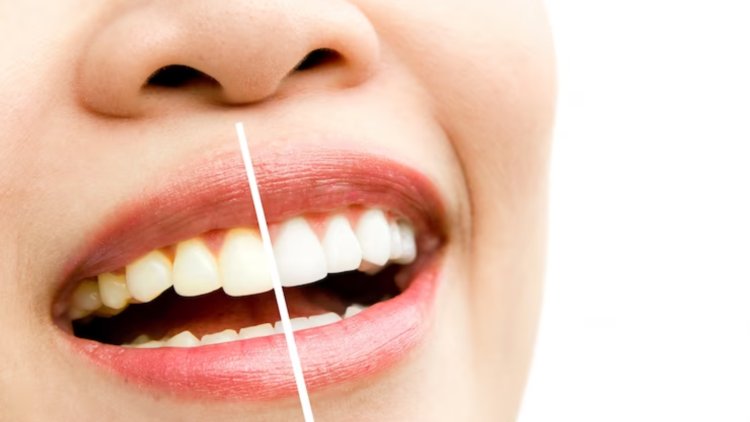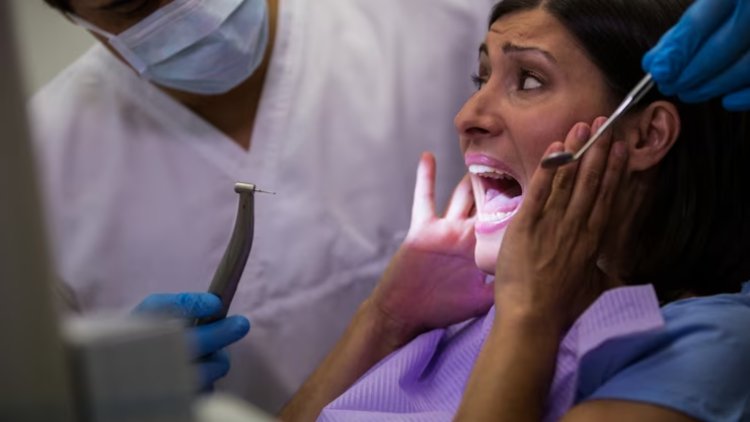Why Are My Teeth Yellow
Discover why your teeth may be yellow and explore effective solutions to regain a dazzling, white smile.

A bright, white smile is often seen as a symbol of good health and confidence. So, if you've noticed that your teeth have taken on a yellowish hue, you might be wondering, "Why are my teeth yellow?" In this piece, we will examine the common causes of teeth yellowing, provide advice on prevention and solutions, and explore teeth-whitening choices to revive your radiant smile.
Natural Tooth Color
First and foremost, it's essential to understand that tooth color can vary from person to person. The natural color of teeth can range from off-white to light yellow or grayish-white. Genetics play a significant role in determining your tooth color, and some people naturally have teeth that appear more yellow than others.
Common Causes of Yellow Teeth
Numerous factors can lead to teeth yellowing:
1. Dietary Choices: Consuming foods and beverages with strong staining properties, such as coffee, tea, red wine, and dark berries, can gradually stain tooth enamel, leading to yellowing.
2. Tobacco Use: Smoking or using tobacco products exposes your teeth to nicotine and tar, which can result in significant yellowing over time.
3. Poor Oral Hygiene: Inadequate brushing and flossing can allow plaque and tartar buildup, making teeth appear yellow due to the accumulation of bacteria and food particles.
4. Aging: As we age, the outer enamel layer of teeth naturally wears
down, revealing the yellowish dentin beneath.
5. Medications: Certain medications, such as tetracycline antibiotics, can cause tooth discoloration when taken during tooth development or used for extended periods.
6. Dental Conditions: Some dental conditions, like enamel hypoplasia or fluorosis, can lead to intrinsic staining and yellowing of teeth.

Preventing Yellow Teeth
While not all causes of yellow teeth can be prevented, here are some tips to help maintain a brighter smile:
- Maintain Excellent Oral Hygiene: Ensure you brush your teeth at least twice daily and floss daily to eliminate plaque and reduce the risk of staining.
- Limit Staining Foods and Drinks: Reduce your consumption of coffee, tea, red wine, and highly pigmented foods. When consuming these items, use a straw to minimize contact with your teeth.
- Quit Smoking: If you smoke, quitting can prevent further yellowing of your teeth and improve your overall oral health.
- Regular Dental Check-Ups: Visit your dentist for regular check-ups and professional cleanings to address early signs of staining and ensure optimal oral health.
Teeth-Whitening Options
If you're unhappy with the color of your teeth, various teeth-whitening options are available:
- Professional In-Office Whitening: Dentists can perform in-office whitening procedures that offer immediate and significant results.
- Take-Home Whitening Kits: Dentists can provide custom-fitted trays and professional-strength whitening gel for at-home use.
- Over-the-Counter Products: Whitening toothpaste, strips, gels, and rinses are available at most drugstores. While generally less potent, they can provide noticeable improvements over time.
Conclusion
Yellowing teeth can be caused by various factors, including dietary choices, tobacco use, poor oral hygiene, and aging. While some causes are beyond your control, maintaining good oral hygiene, avoiding staining substances, and seeking professional teeth-whitening options can help you achieve and maintain a brighter, whiter smile. Remember, a confident smile is a beautiful smile, regardless of its natural shade.

















